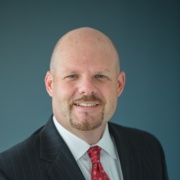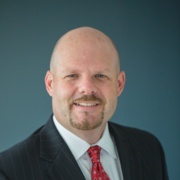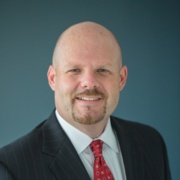
COVID-19 is changing the world, and while chemical manufacturers and distributors have not been spared, not all outcomes are negative. Learn about the impact in this two-part series.

For many chemical distributors, freight rail provides an essential avenue to deliver the products Americans rely on every day. This National Transportation Week, as our supply chains adjust to accommodate new demand amid the coronavirus pandemic, it has never been so important for rail customers — many of which are NACD members — to be able to rely on efficient and affordable rail services in order to run their businesses successfully and serve their customers.

Every year, North American Safety and Health (NAOSH) Week reminds us of the importance of safety and health in the workplace. Amidst the coronavirus pandemic, NAOSH Week is ever more relevant. Many of us are working from home. Some of us are being asked to perform job functions we may not be used to. As chemical distributors continue to warehouse, blend, and deliver the chemicals used to make products needed to address the national public health emergency and keep America running, Responsible Distribution safety and health practices of excellence continue to support everyone from the warehouse to the boardroom.

Until recently, chemical producers and distributors have been fairly slow to react to the new opportunities posed by digital tools and technologies. Other industries such as banking and manufacturing have already embraced the advent of digitalization and have been able to both streamline operations and improve productivity as a result. However, opinions are changing and chemical distributors are becoming far more aware of the benefits and a little less reluctant to invest and innovate, especially in light of the COVID-19 pandemic.

The United States is facing one of the worst threats to our public health and economic growth in our nation’s history due to the rapidly increasing spread of COVID-19. The response from our government to ensure Americans are undertaking social distancing measures – while the right decision to control the spread of the coronavirus – will no doubt have a significant impact on the economy and the bottom lines of chemical distribution companies for weeks and months to come. Yet, in the face of those our challenges, I'm proud to say our members are doing everything they can to support the response efforts in their communities.

With new developments on a minute-by-minute basis, it should be no surprise that even our most long-standing and competent institutions are struggling to keep up with the COVID-19 outbreak. As our government continues toward a hopeful point of stability in the face of the pandemic, at times it has felt as though American businesses are being given helpless or disjointed recommendations when trying to respond. Unable to wait for firm procedural guidance, business leaders have had to make unilateral changes to protect employees and customers.

A renewed focus on small business is a welcome addition to the recently agreed-upon United States-Mexico-Canada Agreement (USMCA), particularly given that so many of our members fall into this category. The new trade deal not only recognizes their importance to our economy, but also looks to support and encourage future growth by requiring each country to carefully consider the potential effects of future rules and regulations on how they operate.

The title almost goes without saying. My four kids, ranging in ages from six to 16, certainly have not before lived through a trying time like we are today. The uncertainty that exists with the continuing spread of the coronavirus and the real possibility of us entering an economic recession, or worse, make these unsettling times to say the very least. We at NACD are doing our best to ensure there is at least a little stability during these troubling times by providing you with the latest developments.

You’d be surprised to find that most employees are motivated by similar things. And likewise, most management teams are looking to implement solutions that coalesce around a similar set of goals — including attracting, hiring, and retaining talent that will align with the strategy and goals of their organization. And above all, produce results. So how do you achieve that? Here’s a few ideas I had the opportunity to present at NACD’s Southern Region Meeting last month that should get you going in the right direction.

Stop me if you’ve heard this one before – the April 18, 2020, expiration of the U.S. Department of Homeland Security’s (DHS) Chemical Facility Anti-Terrorism Standards (CFATS) program is rapidly approaching, and Congress currently does not have passable bipartisan, long-term reauthorization legislation in sight. Once again, similar to how the 15-month CFATS program extension played out in January 2019, Congress finds itself with its back against the wall trying to beat the clock and pass legislation ensuring the continuation of this important security program that maintains near-unanimous support on Capitol Hill.